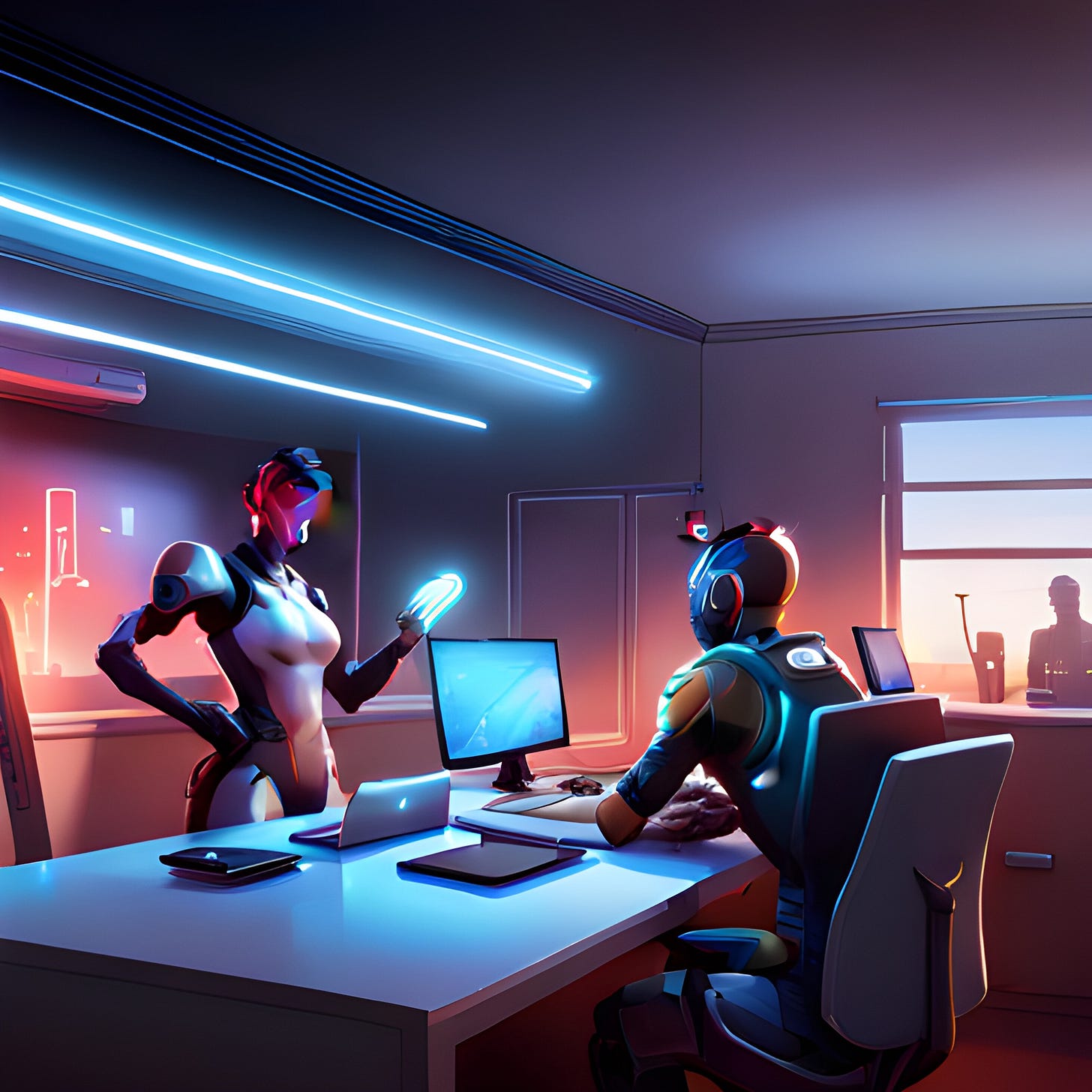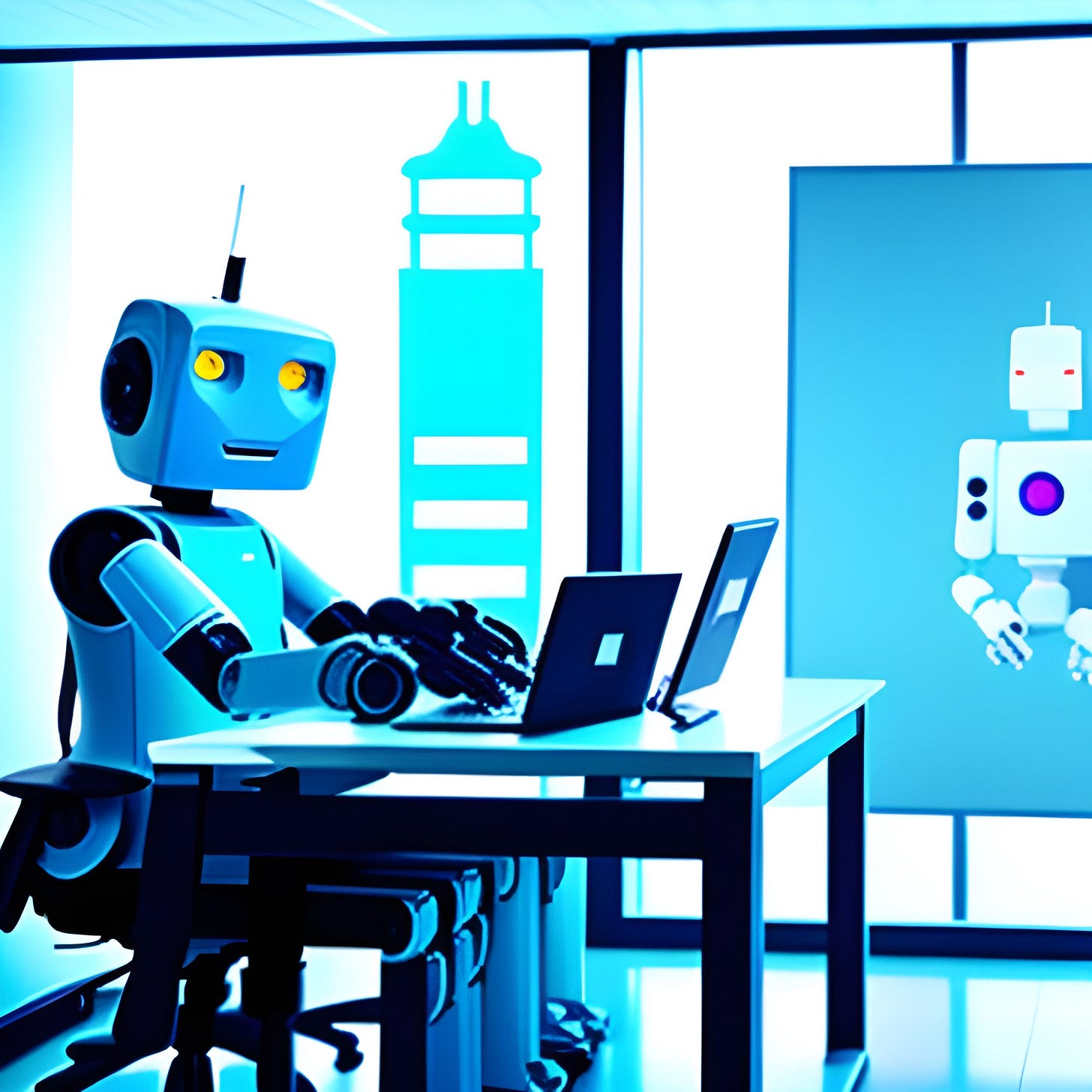AI and the Human Element: How Collaboration is Key to Thriving in the Future Workplace
How to Balance the Benefits of AI with the Value of Human Input in the Workplace.
(Minimal editing but it was aggressively passive in it’s voice)
The world of work is changing rapidly with the rise of automation, artificial intelligence (AI), and other technological advancements. Some predict that these changes could alter the job landscape. While some jobs will inevitably become automated, new jobs will also emerge that require specialized skills, knowledge, and expertise.
As AI becomes more ubiquitous, it's more important than ever to stay ahead of the curve and expect how these changes will affect your career or business.
In this post, we'll take a thorough analysis into the future of work, exploring the effects of AI and automation and the skills and strategies you need to stay ahead in the job market. Whether you're an employee, a business owner, or just curious about the future of work, this post is for you!
What is AI, and how is it changing the job landscape?
AI, or artificial intelligence, is a booming field. The development of computer systems that can perform tasks that would typically require human intelligence is changing the job landscape for everyone.
One of the most significant ways AI is changing the job landscape is by automating many tasks that humans previously did. For example, AI is now used in customer service chatbots, so customer service representatives are no longer needed to answer basic questions.
Similarly, the use of AI in manufacturing is replacing human workers on many assembly lines. Another way in which AI is changing the job landscape is by creating new job roles that did not exist.
For example, AI engineers, data scientists, and machine learning experts are in high demand. These jobs are typically well-paid and require specialized skills that are not easily replicated. Finally, AI is also changing the skills needed for many existing jobs. For example, healthcare professionals must now be familiar with electronic medical records and telemedicine platforms.
Similarly, people in the financial industry must be familiar with machine learning algorithms used to make investment decisions. AI is changing the job landscape which we all need to be aware of. To stay ahead, it is essential to develop new skills and be open to new job opportunities arising from these changes.
The Impact of automation on the job market
The impact of automation on the job market is one of the most hotly debated topics in the world of work today. Many believe the rise of AI and automation will lead to job losses and unemployment, but others argue these technologies will create new opportunities and help humans work more efficiently.
It's likely that both things will happen. Jobs involving manual labour and repetitive tasks are most at risk. This includes jobs in manufacturing, transportation, and logistics.
However, many jobs require creativity, critical thinking, and emotional intelligence, which are less likely to be automated. This includes careers in healthcare, education, and the arts.
It's essential for humans to stay informed about the impact of automation on the job market and develop skills in high demand.
This could be learning to work with AI and automation or focusing on jobs requiring skills that machines can't replicate. By doing so, Humans can ensure they are prepared for the future of work.
The skills Humans need in the age of AI.
As humans face an increasingly AI-driven job landscape, developing new skills is essential. Important skills that humans need to remain relevant include creativity, problem-solving, critical thinking, and adaptability.
These are essential to develop of new technologies and implementing AI in various industries.
Humans should focus on developing their communication and collaboration skills, as AI will require human input to function correctly. Developing technical skills, such as coding, data analysis, and machine-learning is essential. These technical skills will play a vital role in developing and implementing AI technologies.
Humans should focus on developing their emotional intelligence, as AI still struggles to replicate human emotions and empathy. The ability to connect with people, understand their needs, and work collaboratively will be essential.
Strategies for adapting to the future of work.
As technology advances, the job landscape will continue to shift. Artificial intelligence (AI) is the most transformative technologies of our time, and it is likely to affect the future of work significantly.
However, there are strategies humans can adopt to adapt to stay ahead of the machines.
First, developing skills that machines cannot easily replace is essential. This means developing skills that require creativity, critical thinking, and emotional intelligence.
These skills will be in high demand as machines become more capable of completing repetitive tasks.
Second, consider reskilling or upskilling in a field related to AI. Learning about AI and its related technologies can give you a competitive edge in the job market.
Third, embrace technology in your daily work.
Become comfortable using the latest software and tools and be open to learning new ways of doing things.
Finally, maintain a growth mindset. The future of work is unpredictable, and it is essential to remain adaptable and open to change.
Continuously seek opportunities for learning and development, and do not be afraid to take risks and try new things. By adopting these strategies, you can position yourself for success in the ever-changing job landscape.




